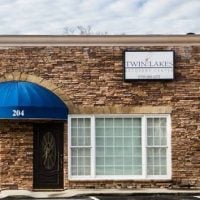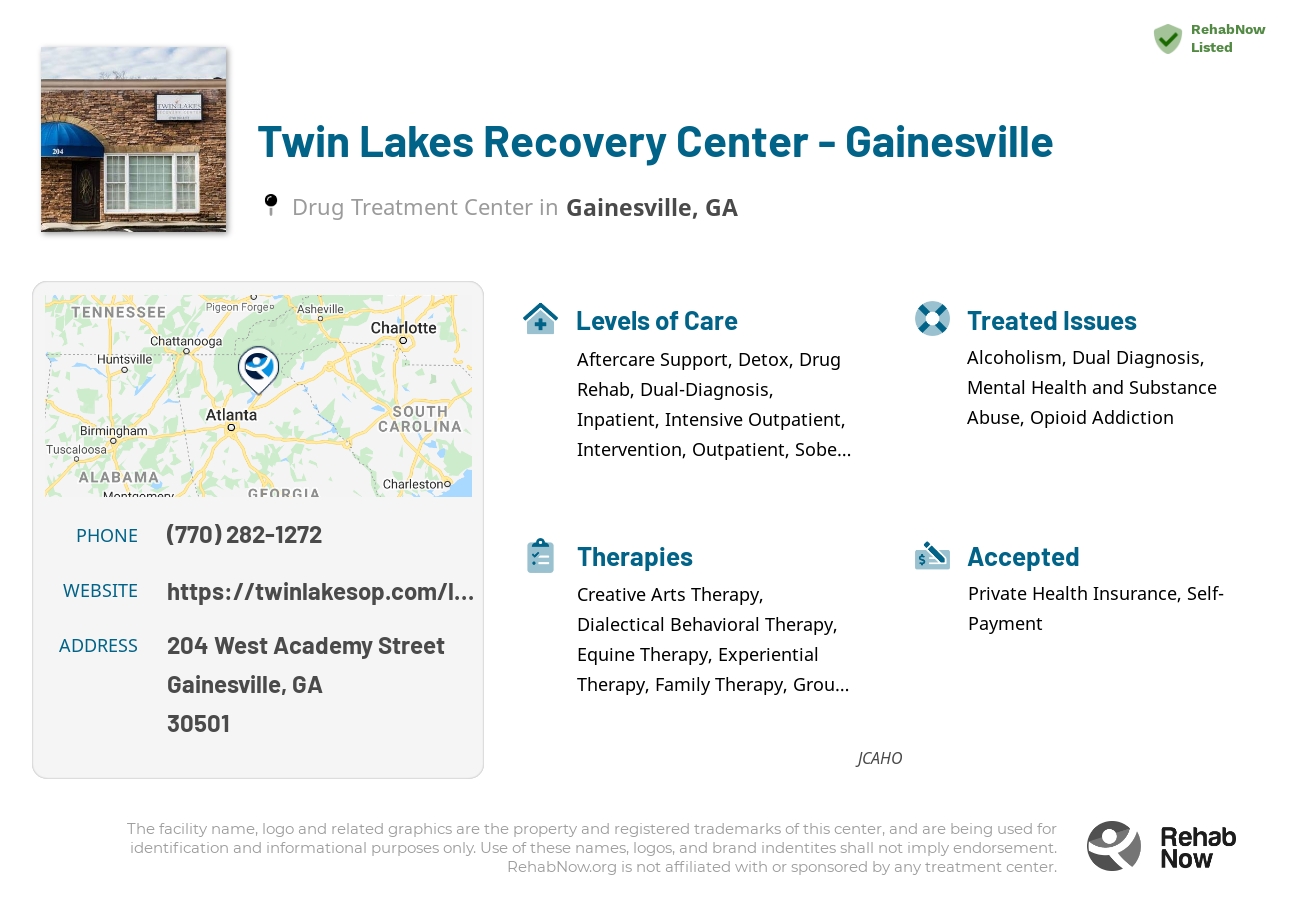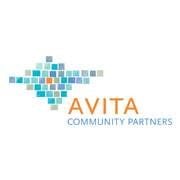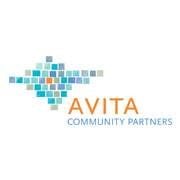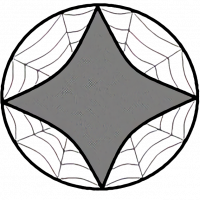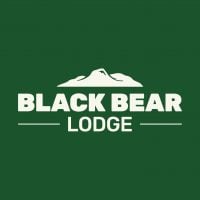Twin Lakes Recovery Center - Gainesville
Drug Rehab Center in Gainesville, Georgia
Twin Lakes Recovery Center - Gainesville, located in Gainesville, Georgia, offers comprehensive addiction treatment services including drug rehab, dual-diagnosis, intensive outpatient, intervention, inpatient treatment programs, detox, and aftercare support services, with a focus on individual therapy, group therapy, family therapy, and relapse prevention.
About Twin Lakes Recovery Center - Gainesville in Georgia
Located in Gainesville, Georgia, Twin Lakes Recovery Center - Gainesville specializes in outpatient addiction treatment. With a unique focus on treating the individual holistically, it combines Intensive Outpatient Programming (IOP) with a 12-Step approach, addressing the mind, soul, and body for a comprehensive recovery journey.
- Holistic Treatment Approach: Twin Lakes emphasizes treating the whole person, not just the addiction, employing methods that nurture mind, soul, and body.
- Intensive Outpatient Programming (IOP): Offers structured outpatient care allowing patients to remain engaged in their daily lives while receiving treatment.
- Individualized Support: Provides small group sizes, individual sessions, and as-needed drug screenings, aiming to address and overcome recovery obstacles.
Accredited by the Joint Commission on Accreditation of Healthcare Organizations (JCAHO), Twin Lakes Recovery Center - Gainesville prides itself on high-quality care standards. The center’s comprehensive approach includes exploring practical ways of overcoming recovery obstacles, guided by proven therapeutic methods and group therapy.
Patients struggling with Alcoholism, Opioid Addiction, Substance Abuse, and Dual Diagnosis find a suite of services tailored to their needs, from Drug Rehab and Dual-Diagnosis treatment to Intensive Outpatient and Intervention programs. The center adopts evidence-based treatment principles, including individual therapy, group therapy, family therapy, and relapse prevention, supported by flexible levels of care to accommodate diverse patient requirements.
Genders
Ages
Modality
Additional
Accreditations

JCAHO
Conditions and Issues Treated
Substance abuse is the excessive use of any drug. This includes alcohol, medications, and illegal drugs. Substance abuse is treated with a combination of physical and mental treatments. Patients detox and follow up with therapies that target the underlying cause of the addiction. Substance abuse is a severe problem that can be successfully treated with a variety of therapies. Twin Lakes Recovery Center - Gainesville treatment uses a combination of therapies along with other resources to overcome substance abuse.
Opioid addiction treatment should be done in a medically supervised drug rehab. While taking opioids, users will typically use other substances to enhance the effects of opioids or to reduce the adverse effects of opioid use. Opioid addiction treatment will include detoxification and drug rehab counseling to help both the user and their loved ones learn how to live a successful sober lifestyle.
Treatments such as methadone, buprenorphine, and naltrexone are three medications that can help treat opioid addiction. These drugs work on the brain’s pleasure center and reduce cravings and the effects of illicit opioids such as heroin. These drugs can be either given orally or by injection. Individual drug rehab counseling sessions can be helpful to discuss any questions or concerns with the drug treatment program. This counseling will also help the user set goals for when they finish drug rehab.
Opioid addiction recovery is a long process. Many of the changes to the brain caused by opioid use cannot be undone, but with time and the proper treatment, a person can return to normal function. After detox, treatment will include drug rehab counseling and entering a halfway house or sober living community. Aftercare is critical to long-term recovery, as it helps the user avoid relapsing and entering back into drug rehab.
Levels of Care Offered
This center offers a variety of custom treatment tailored to individual recovery. Currently available are Aftercare Support, Detox, Drug Rehab, Dual-Diagnosis, Inpatient, Intensive Outpatient, Intervention, Outpatient, Sober-Living / Half-Way, with additional therapies available as listed below.
An addict may have to go through alcohol or drug withdrawal. While detox may be uncomfortable, it is not life-threatening. Detoxification allows the addict to rid the body of all traces of drugs or alcohol and gives the addict a clean slate for their recovery. In an inpatient or outpatient setting, detox can be managed medically.
Inpatient treatment for alcoholism or drug addiction is an option that provides the addict with a supportive environment in which they can stop using. This type of treatment is appropriate for addicts that are most in need of intensive care and supervision. This includes those who were unable to quit on their own, those who need more structure than they can get in outpatient treatment.
Intensive outpatient treatment is a type of comprehensive addiction care. Unlike conventional residential treatment programs, the patients live at home during the recovery process. This means that one can continue working and caring for their families. These also allow people to keep pursuing their studies while also working on their sobriety.
Outpatient treatment can help one transition to normal life from the round-the-clock supervision and treatment available during inpatient treatment. It is an excellent tool to ensure long-term recovery. However, it is essential to note that intensive outpatient treatment in itself does not remove patients from the real-world setting. This means there’s always a higher risk of coming across environmental triggers. To further prevent relapse, an outpatient treatment center should be able to provide ongoing support services.
Once the patient is enrolled in an intensive outpatient treatment program, they will be expected to attend therapy and group meetings daily for a stipulated period. The frequency and duration of each session will depend on the patient’s needs and level of addiction. This can help curb the habit and deal with underlying issues that led to it. Most of these professional treatments are designed to allow patients to structure their daily schedules in a way that is conducive to recovery.
“Outpatient treatment is ideal for those who have a lower intensity addiction. It’s also suitable for those with a supportive environment and those on a tight budget.
Outpatient treatment can be considered the lowest intensity level of addiction treatment. It is ideal for early phase addiction or lower intensity addictions. It may involve weekly sessions instead of daily. Peer group support, 12-step programs, and individual counseling may still be used and anti-addiction medication.
Sober living homes are halfway houses where people can stay for a while and stabilize themselves—no drinking or drugging, paying rent/bills, etc. There is no minimum or maximum stay, but as long as you follow these simple guidelines, it’s an excellent chance to move forward into sobriety!
For many, this is a new beginning, a reset. The opportunity to establish new routines and healthy habits that will result in long-term sobriety is given to those who have lost everything due to addiction. It’s also common for people to move from one sober living home to another, each step closer to a drug and alcohol-free life.
Drug rehab intervention aims to make sure patients understand the risks of their addiction and possible outcomes. They must learn how their addiction affects those around them and allow a therapy session to help move past the physical symptoms. They often include psychotherapy or behavioral therapy, group therapy, family counseling, and peer support.
Aftercare support is vital to those who have completed a drug or alcohol treatment program. This support comes in individual and family counseling, treatment of psychiatric and other medical conditions, and medications to reduce cravings. It helps recovering addicts adjust to normal day-to-day activities and can last for a year or longer.
The majority of drug and alcohol addicts who receive aftercare treatment do not relapse. It is estimated that without aftercare, the relapse rate will be between 70 to 90 percent for most people. Aftercare is the final stage in addiction recovery, but it will also help maintain sobriety if relapse does occur.
Therapies & Programs
No single treatment works for all addicts; therefore, the goal of treatment and therapy should be to find what works best for each individual. Some people requiring addiction treatment may only need a few weeks of inpatient care. Others will require long-term residential care. Tolerance and withdrawal levels vary from person to person and thus affect the intensity of the treatment needed.
If an individualized approach to treatment and therapy is not offered, addicts may fail to reap benefits from their efforts. Professionals must customize plans according to their patient’s needs, limitations, and strengths. The goal of all forms of addiction treatment should be for addicts to find healthy ways to cope with their addiction and its underlying causes.
The therapies usually include siblings, children, and parents who are involved in their daily lives. These sessions are vital because they address past issues that may have hampered an addict’s or alcoholic’s recovery and provide support at a crucial time!
One of the most critical aspects of family therapy is helping addicts’ loved ones see their situation in a new light. It’s also one of the most challenging things a family can do when a loved one struggles with addiction or alcoholism.
Group therapy is held in a safe, controlled setting where patients can feel comfortable sharing their struggles and gaining perspective through shared conversations. It takes place in a group rather than one on one to prevent feelings of isolation or being unique in their situation while creating an environment for addicts at Twin Lakes Recovery Center - Gainesville to develop fellowship, accountability, and support. Group therapy is an important tool in recovery that prevents cravings that prompt a return to active addiction.
Dialectical Behavior Therapy is a form of Cognitive Behavioral Therapy that helps patients understand the relationship between their thoughts, feelings, and behaviors. It is beneficial for those whose addictions and behaviors stem from severe mental health issues. It aims to help the patient achieve their goals and identify how they can enhance their lives.
Cognitive-behavioral therapy is a talking-based method that helps people struggling with addiction replace destructive behaviors with healthier ones. CBT also helps them identify the underlying thoughts and beliefs that cause these behaviors in the first place and ways to control those thoughts and feelings. It can be administered as a holistic therapy or as part of combination therapy and—as opposed to turning to drugs and alcohol—helps addicts learn how to respond to negative thoughts instead.
12-step programs are one of the most common types of relapse prevention programs. They’re typically offered by private organizations like Alcoholics Anonymous, Narcotics Anonymous and Nicotine Anonymous.
During these meetings, addicts can learn about their addiction and work through it with others who are also struggling to overcome their addiction. These groups provide support that the addict might not be able to get from friends and family, and they can also prevent the addict from feeling isolated.
While self-help groups like these are effective for some addicts, others prefer services that provide more structure and support. For example, these programs might offer counseling sessions or even medical treatment with prescription medication.
When you leave a healthy lifestyle behind to live as an addict, your body becomes unbalanced. Nutritional deficiencies gradually creep in, and before you know it, you’re facing severe health problems. For people who are trying to kick their drug addiction, nutrition therapy at Twin Lakes Recovery Center - Gainesville is a great tool. It helps restore balance to the body, and for many addicts, it represents the first step on the road to recovery.
Nicotine replacement therapy is a way for people to get the nicotine they are addicted to without having to smoke cigarettes. There are several different types of devices that have been approved for NRT. Studies have shown that all NRTs work better than placebo (fake treatment). NRT helps smokers get nicotine into their system without resorting to smoking and experiencing aggressive withdrawal symptoms. Coupling NRT with counseling and other means of support gives long-term smokers a better chance of removing their unhealthy habit.
Patient Experience
Creative Arts
Creative arts therapy is a form of expressive therapy that uses painting, music, poetry, and other creative means to help those battling addiction. It is beneficial for patients to release negative feelings and emotions and explore how their thoughts and emotions play out through the creative process. Twin Lakes Recovery Center - Gainesville in Gainesville, GA, offers creative art therapy to help patients cope with addiction and its after-effects.
Experiential Therapy at Twin Lakes Recovery Center - Gainesville
Experiential Therapy is used by drug treatment facilities to treat substance abuse. This treatment is clinically proven to help addicts in detoxification by allowing them to release emotions in a safe environment. The treatment process involves addicts painting their feelings and releasing them on a canvas.
One of the most popular forms of experiential therapy is known as LPE – Love, Peace, and Equilibrium. Amy Gumowitz developed this treatment in 1992. By implementing her philosophy of “reality therapy” into the treatment, Gumowitz’s results were outstanding. Once her success was validated by those she had been helping, she decided to open her treatment center. Although Gumowitz passed away in 2007, her contribution to the addiction recovery remains effective, and better yet, it is 100% self-sufficient.
Equine Therapy at Twin Lakes Recovery Center - Gainesville in Georgia
Horses have a number of attributes that make them ideal for this type of therapy. For instance, they can help addicts work through their feelings in a safe environment while providing a nurturing support system that is free from judgment and criticism.
In these sessions, addicts interact with horses under the guidance of an equine therapy expert. Many recovering addicts find this type of therapy to be extremely beneficial because the horses provide unconditional love and support that can help addicts feel more comfortable discussing their deepest feelings.
In addition, the physical nature of this type of therapy provides a positive distraction from cravings and urges. This is especially important for recovering addicts who struggle with intense cravings that can quickly lead to relapse if they aren’t properly managed.
Payment Options Accepted
For specific insurance or payment methods please contact us.
Is your insurance accepted?
Ask an expert, call (888) 674-0062
Additional Details
Specifics, location, and helpful extra information.
Gainesville, Georgia 30501 Phone Number(770) 282-1272 Meta DetailsUpdated April 15, 2024
Staff Verified
Twin Lakes Recovery Center - Gainesville Patient Reviews
There are no reviews yet. Be the first one to write one.
Gainesville, Georgia Addiction Information
Prescription opioid use has caused a large increase in the total amount of overdoses in Georgia. Almost 12% of the Georgia population uses illicit drugs each year, and slightly over 3.5% also abuses alcohol at the same time. This does not include those who binge-drink at least once a month, which includes 20% of all Georgians.
Treatment in Nearby Cities
- Douglas, GA (201.1 mi.)
- College Park, GA (57.0 mi.)
- Morven, GA (232.9 mi.)
- Washington, GA (73.5 mi.)
- Columbus, GA (143.6 mi.)
Centers near Twin Lakes Recovery Center - Gainesville
The facility name, logo and brand are the property and registered trademarks of Twin Lakes Recovery Center - Gainesville, and are being used for identification and informational purposes only. Use of these names, logos and brands shall not imply endorsement. RehabNow.org is not affiliated with or sponsored by Twin Lakes Recovery Center - Gainesville.
